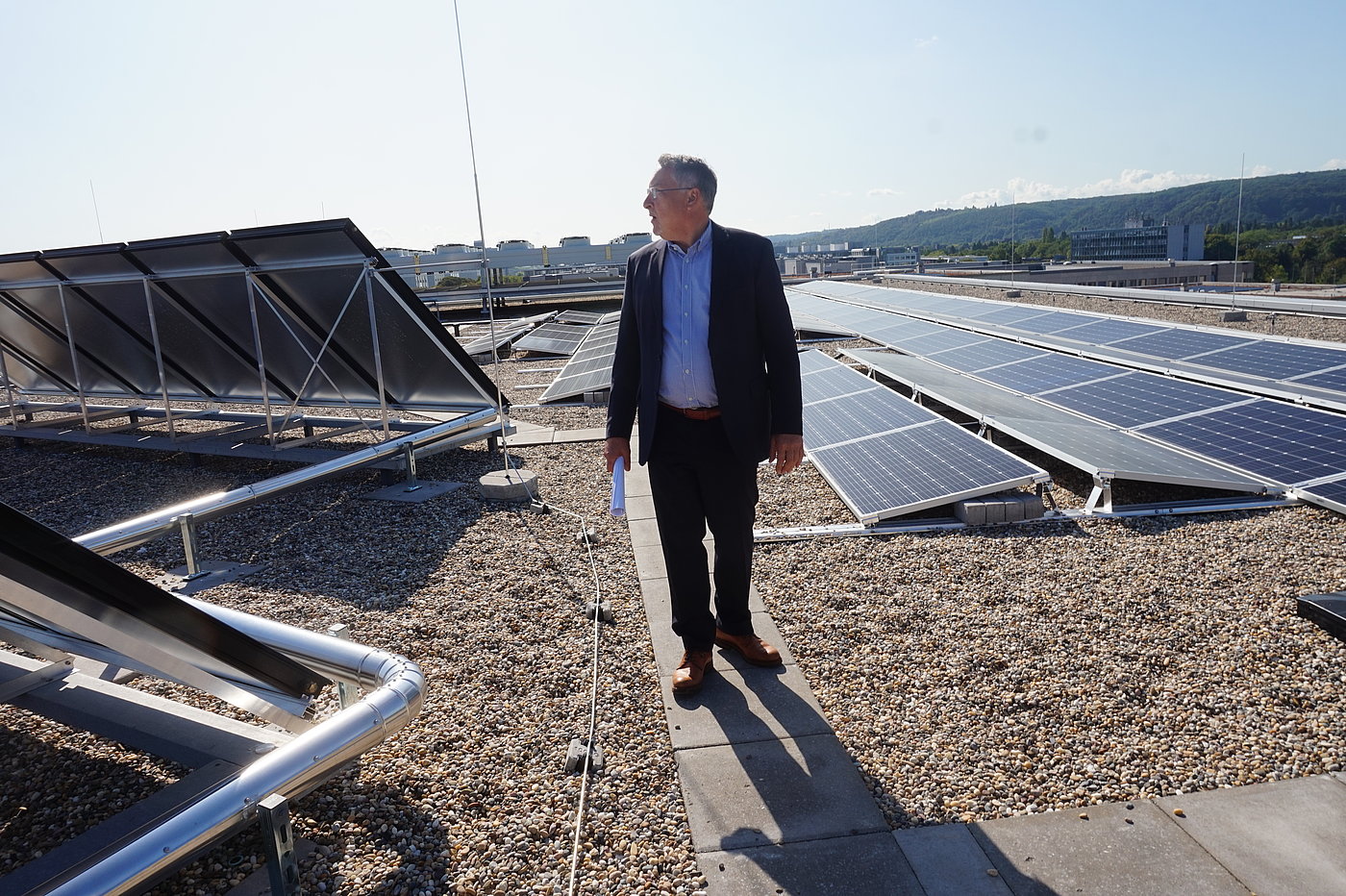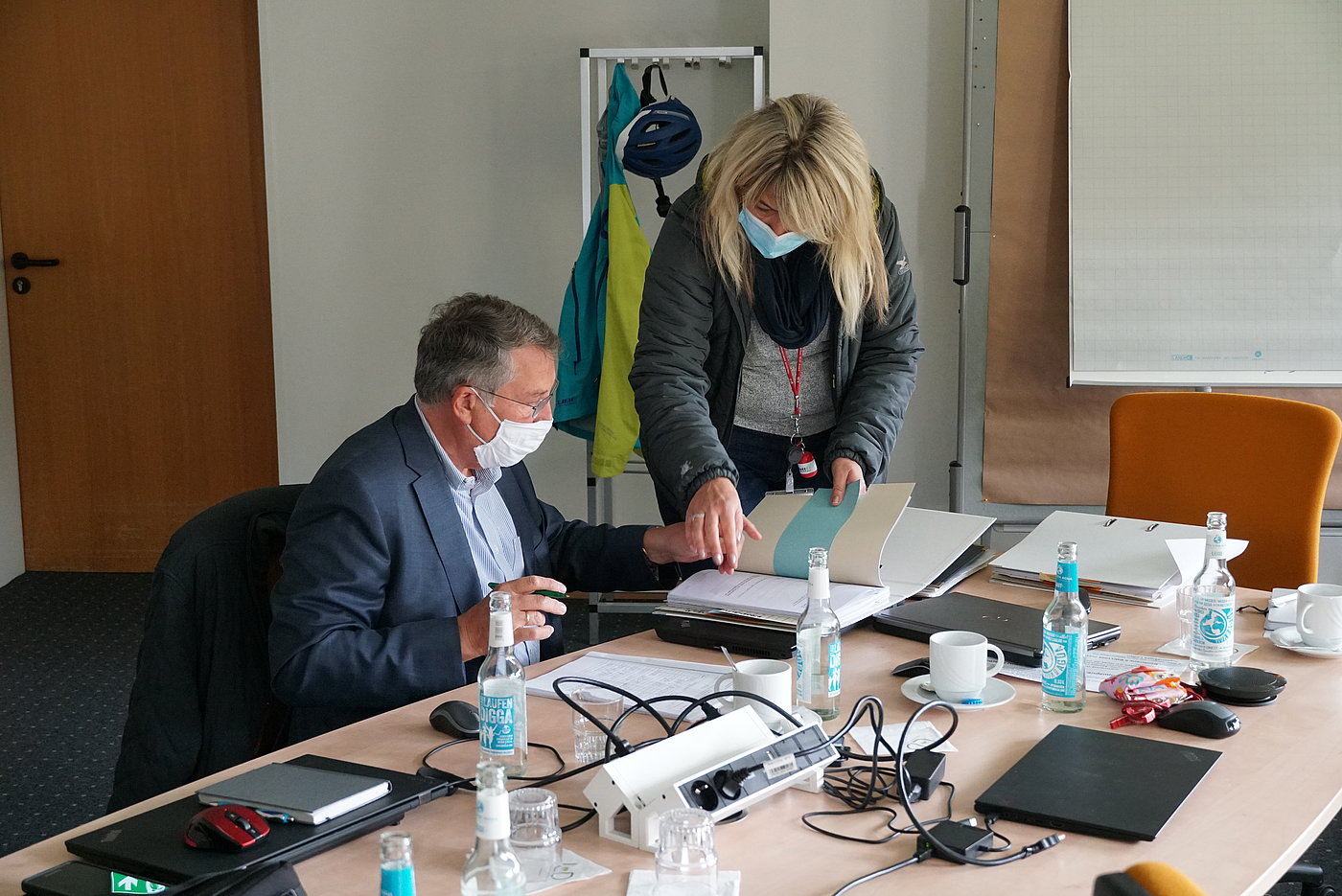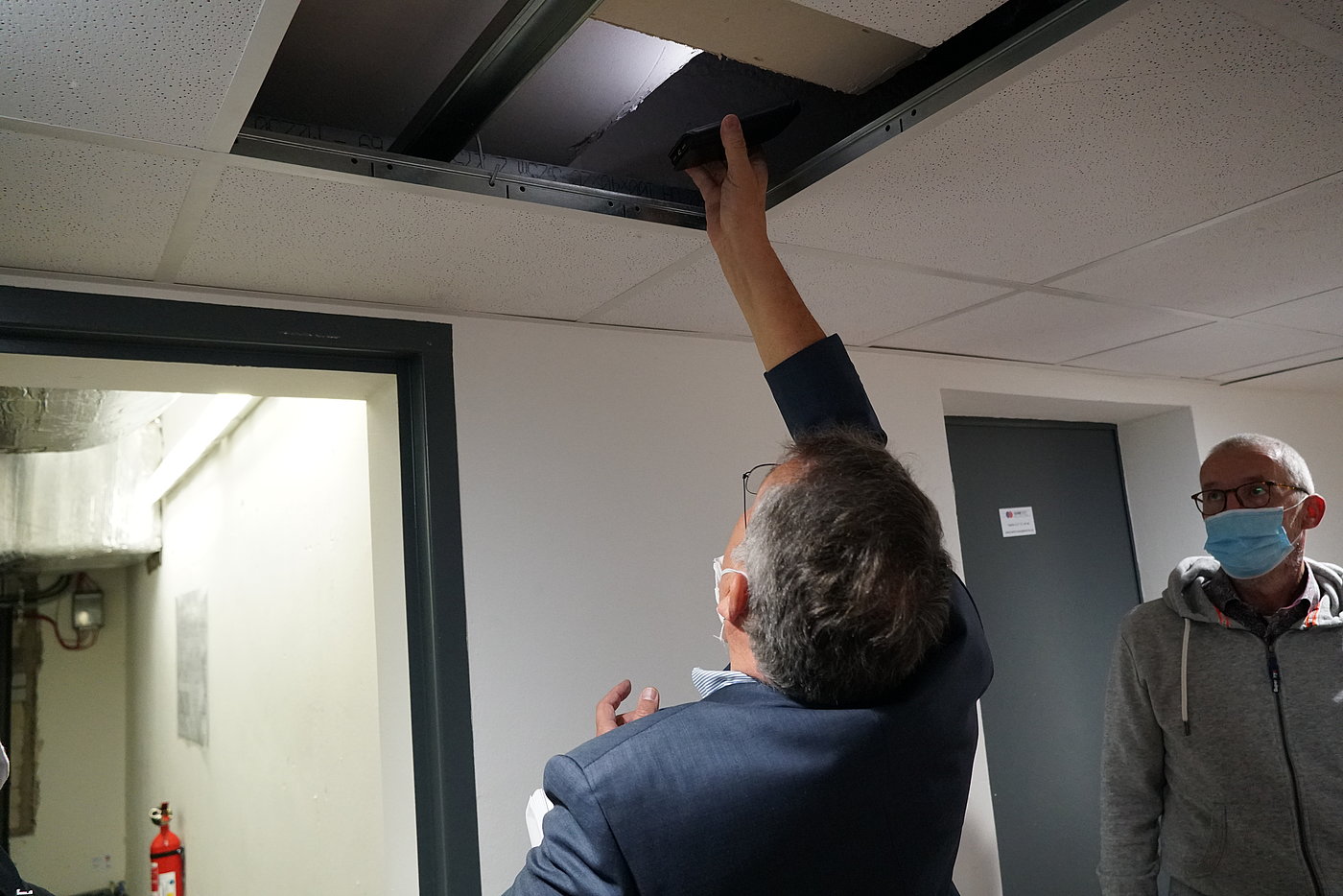Environmental
management at GIZ
GIZ’s Environmental Mission Statement
Sustainable development requires responsible use of the environment and natural resources. This is the only way to ensure that future generations have opportunities for development. GIZ has drawn up its own Environmental Mission Statement. We will continue:
- to systematically avoid or reduce the company’s environmental impact;
- to make sparing use of scarce resources such as energy and water and increase the use of eco-efficient technologies and materials;
- to implement our strategy of becoming a carbon-neutral company;
- to plan and carry out all projects and programmes with minimum environmental impact;
- to engage in participatory environmental communication with our staff and raise their awareness of environmental issues;
- to continue to develop our Environmental Mission Statement through open dialogue with fellow professionals within the company and elsewhere;
- to inform our partner companies, service providers and suppliers about the mandatory nature of our Environmental Mission Statement.
GIZ also undertakes to steadily improve its environmental performance at locations covered by the European environmental management system EMAS.
Environmental Programme 2021–2025
The Environmental Programme has been incorporated into our new Sustainability Programme. The Sustainability Programme essentially addresses the entire GIZ workforce in Germany and in the countries where we operate, and many elements concern environmental protection and climate change mitigation. The number one objective is to reduce greenhouse gas emissions at GIZ locations in Germany. By 2025, GIZ aims to cut emissions to a level that will make an active contribution to achieving the Paris Agreement targets. From a strategic perspective, we see climate change mitigation as the single most important issue, enabling us to build further on our pioneering role in the field of corporate sustainability management. The environmental elements of the Sustainability Programme thus focus primarily on climate management and mobility.
EMAS-compliant environmental management system in Germany
GIZ uses two different environmental management systems to take account of the specific conditions prevailing in Germany and in the countries where we operate. In Germany, we use the Eco-Management and Audit Scheme (EMAS), which is an extension of the ISO 14001 environmental management standard.
EMAS is the world’s most exacting certification system for corporate environmental management. The scheme’s members are required to make continuous, annually verified improvements in their environmental performance. The overriding priority is to steadily reduce GIZ’s environmental impacts and provide evidence of this reduction. We draw up an annual interim balance of progress made towards achieving the environmental goals set under the EMAS scheme. This is presented to the responsible Chamber of Commerce and Industry in the form of a declaration, which is then subject to an external audit by EMAS.
The Chair of GIZ’s Management Board acts as the company’s EMAS environmental management representative. Our TÜV-certified Environmental Management Officer is based in GIZ’s Sustainability Office. The Officer launches and monitors all necessary steps within the company that are relevant for the EMAS system and coordinates implementation of measures laid out in the Environmental Programme in close consultation with other units.
Our registered offices in Bonn and Eschborn and our representation in Berlin first gained EMAS certification in 2013. Other buildings in Berlin, Bonn and Feldafing were included in the scheme over subsequent years.
Environmental management in partner countries: the CSH
To record our progress in the field of sustainability in the countries in which we operate, we use the Corporate Sustainability Handprint® (CSH). It provides GIZ staff with a uniform framework for corporate sustainability and therefore also for environmental management. We have collected climate and environmental data every year in all our country offices since 2018. The quality of data is not yet comparable with the data for Germany but it is getting better all the time. This is also true of the availability of data. A new method that has been in use since 2020 allows us to extrapolate to fill gaps, providing a sound, precise database for the Sustainability Programme 2021–2025 and for future offsetting.
When we record environmental data, we distinguish between an ‘environmental footprint’ and an ‘environmental handprint’. While an organisation’s environmental footprint measures things such as water consumption and CO2 emissions, the handprint documents active contributions towards sustainability: for instance, using solar panels rather than generators, arranging carpools for commuters, raising awareness of health issues, providing information about ethical conduct in potential conflict situations, and ensuring sustainable procurement. GIZ encourages its teams on the ground to optimise their sustainability balance.
Ecological balance
In conclusion we should stress that GIZ has set itself the goal of improving its ecological balance as one of the three dimensions of sustainability. The company aims to reduce its greenhouse gas emissions, consume fewer resources and continue to apply sustainable construction methods. In 2020, for the first time, environmental data was also used to offset unavoidable emissions both in Germany and abroad.
Information on the following Sustainable Development Goals (SDGs) can be found on this page:



